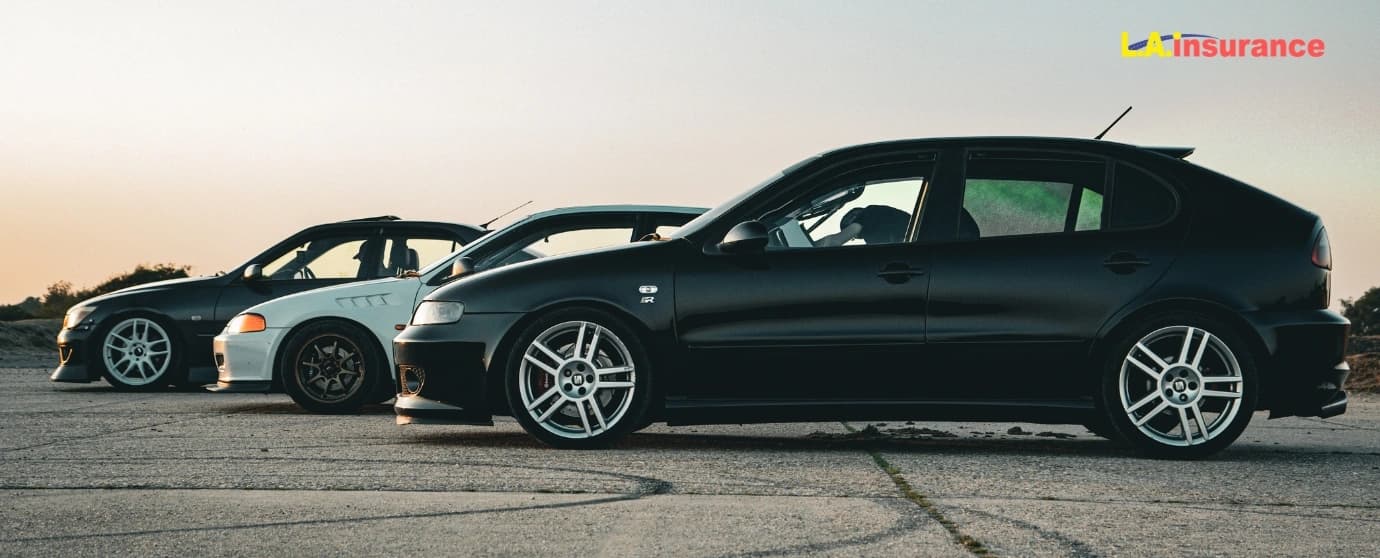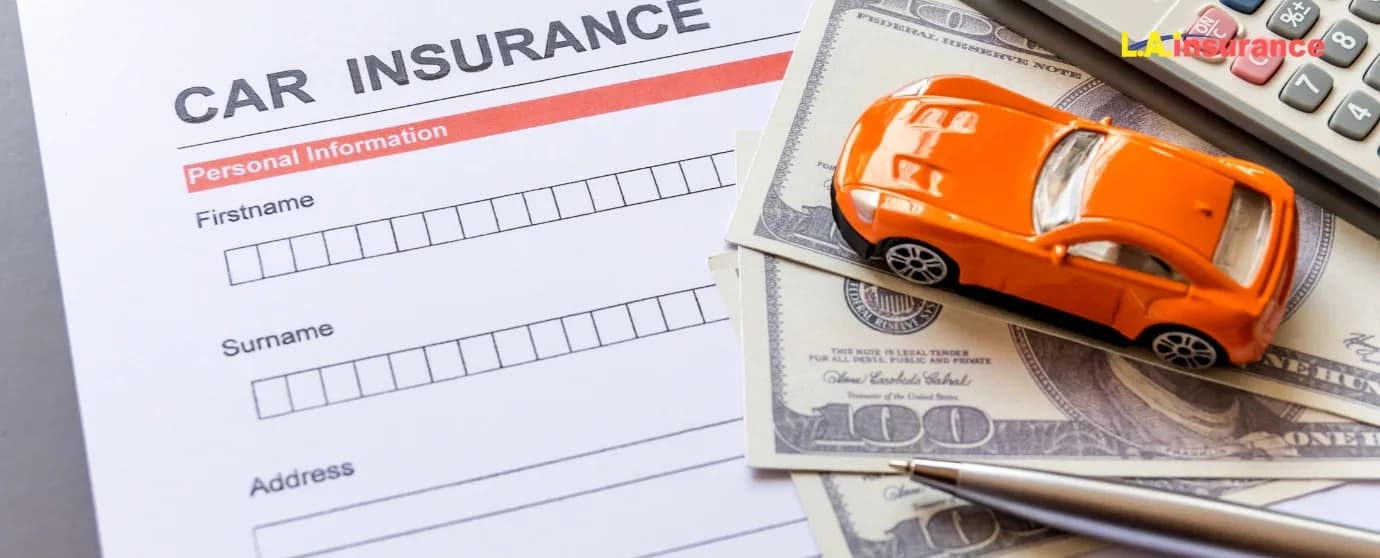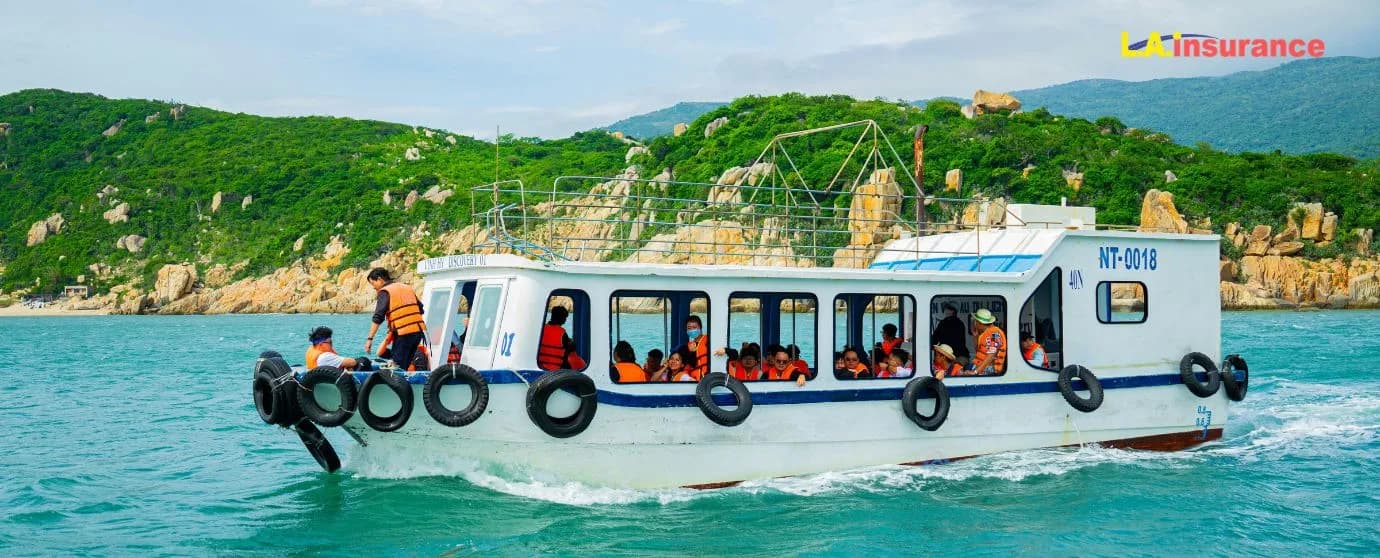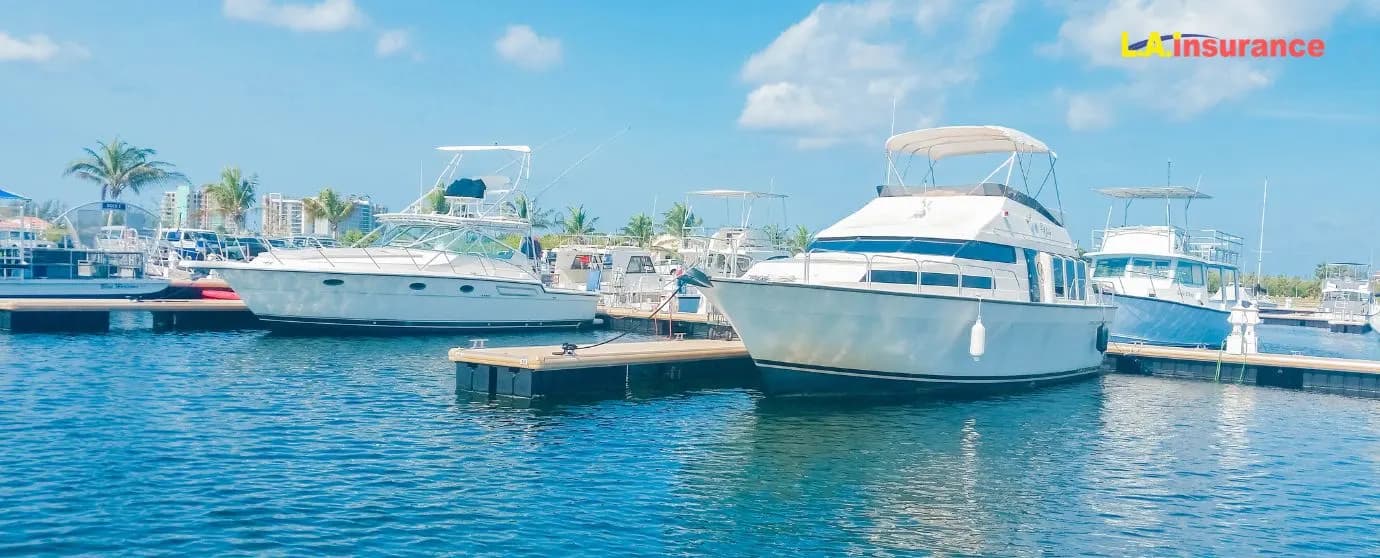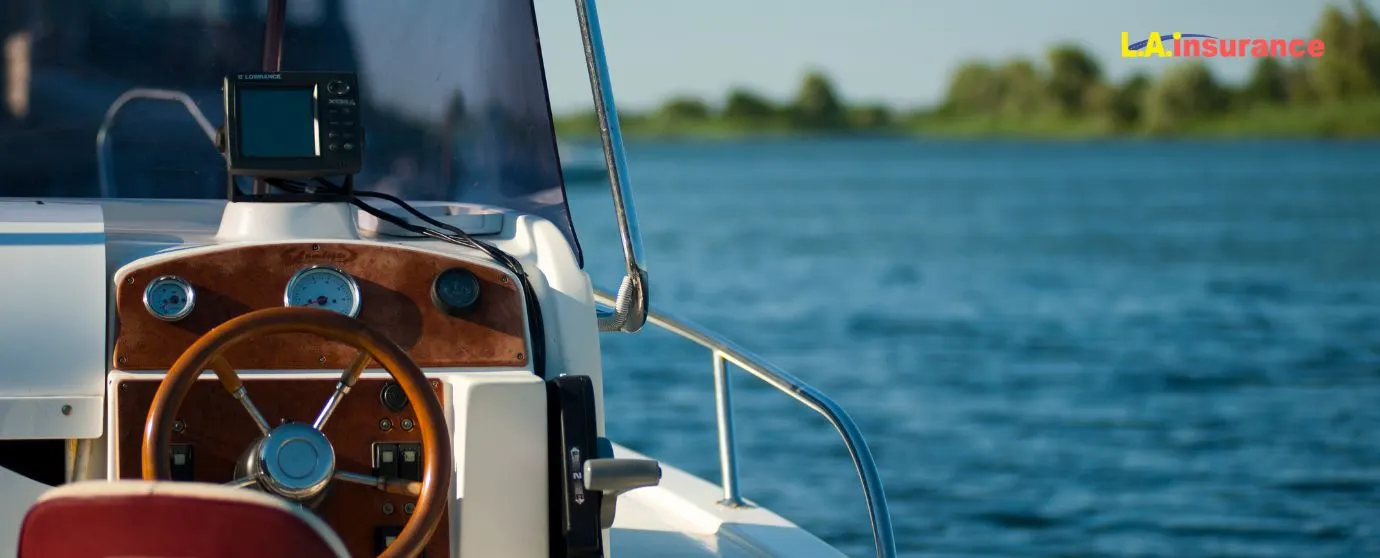
November 10, 2025
Auto Insurance
What Is Non-Owner Car Insurance?
Have you ever wondered if you could get car insurance without owning a car? Many people drive but do not have their own vehicle. Does that mean you are fine without insurance? Not really. The risks are still there. Whether you rent, borrow, or use a car-sharing service, accidents can happen. To cover those unexpected crashes and to meet SR-22 or FR-44 requirements after a license suspension, non-owner auto insurance, also known as Personal Mobility Coverage, could be the right option for you.
This coverage helps you maintain minimum liability insurance, even when the vehicle is not registered or titled in your name. Let’s explain how auto insurance for non-car owners actually works, what it covers, exclusions, costs, and other relevant details.
Key Takeaways:
- Non-owner car insurance provides liability coverage if you drive but don’t own a vehicle.
- It helps pay for bodily injury and property damage you cause to others.
- You can add personal injury protection or uninsured motorist coverage for extra safety.
- It’s ideal for people who rent, borrow, or share cars frequently or need to file SR-22/FR-44
- The average cost for non-owner auto insurance ranges from $200 to $800.
- It keeps your insurance history active and can lower future auto insurance costs
What Is Non-Owner Auto Insurance Policy?
A non-owner car insurance policy is a type of auto insurance coverage that usually offers liability-only protection for drivers who do not own the vehicle. Like standard liability auto insurance, the bodily injury component covers injuries to other people, and the property damage portion helps pay for damage to another person's vehicle or property. This coverage applies only to accidents where you are at fault while driving a borrowed or rented car.
For example, if you borrow your friend's vehicle and accidentally hit another car, your non-owner car insurance may help pay for the damage or medical expenses after the owner's insurance policy limits are exhausted.
Keep in mind that if you occasionally borrow a vehicle owned by someone who lives with you, you may be added to their policy as a listed driver or rely on what is called permissive use. In most cases, permissive use covers an occasional driver under the owner's insurance. So, you don’t need to buy a separate non-owner policy.
Also, read this article to learn more about car insurance: Does auto insurance follow the car or driver?
How Does Auto Insurance for Non-Car Owners Work?
Non-owner auto insurance actually acts as a secondary liability coverage for drivers who don’t own a car but still drive occasionally. When you borrow or rent a vehicle, the owner’s auto insurance policy usually pays first if you cause an accident. If the damages or medical bills exceed their coverage limits, your non-owner car insurance policy becomes effective and covers the rest.
So, non-owner auto insurance is linked to you, not the car. And it follows wherever you drive, helps you maintain proof of insurance, continuous coverage without lapse. It also provides liability-only if your license is suspended and requires SR-22/FR-44 (in Florida or Virginia) due to serious infractions like DUIs.
Real-Life Example:
Allen doesn’t own a car. But he often borrows his roommate’s vehicle to commute. After a minor collision, his friend’s insurance coverage pays up to its limit, and Allen’s non-owner car insurance covers the remaining property damage and bodily injury costs.
What Does Non-Owner Car Insurance Cover?
As we said, non-owner car insurance mainly provides liability auto insurance. It covers bodily injury and property damage you cause to others.
Many policies also include medical payments or personal injury protection, uninsured or underinsured motorist, and other types of car insurance coverage. The non-owner can also help pay legal defense costs if you’re sued after a covered accident.
Here’s what’s typically covered:
- Bodily injury liability: covers medical expenses, lost wages, and legal fees if you injure someone in an accident.
- Property damage liability: Pays for repairs or replacement costs for damaged vehicles, fences, or other property.
- Uninsured/underinsured motorist coverage: protects you if the other driver has little or no insurance at all.
- Medical payments or Personal Injury Protection (PIP): Pays for medical bills for you and your passengers regardless of who’s at fault.
For instance, let’s say Allen doesn’t own a vehicle, but he rents one weekly for work. One day, he rear-ends another car, which causes $30,000 in damages. The rental company’s basic coverage only pays $25,000. Fortunately, Allen has non-owner insurance, which kicks in and covers the remaining $5,000 in property damages and bodily injury costs. And that’s how it saves him from paying out of pocket.
What Isn’t Covered by Non-Owner Insurance?
Non-owner auto policy doesn’t pay for you, your vehicle, or your passengers. It usually pays other drivers. Besides, it only gets effective when the owner’s insurance exceeds its coverage limit. Here’s what it typically won’t cover for you:
- Damage to the vehicle you’re driving
- Your own medical expenses (unless PIP or MedPay applies)
- Theft, vandalism, or loss of personal items
- Business or commercial use Other drivers not listed on the policy
- Comprehensive insurance or collision coverage for the vehicle repair or replacement
Who Benefits from Non-Owner Auto (NOA) Coverage?
Not everyone needs non-owner auto insurance. In fact, if you can be listed as a driver on someone else's policy or are able to secure regular auto insurance for your situation, you do not need to worry about buying a non-owner policy. However, there are various types of drivers who don’t own a vehicle but still need to maintain minimum car insurance. This includes people who borrow cars frequently and could benefit from this type of coverage.
- Frequent borrowers: You often borrow other people’s cars for errands or commuting. Non-owner coverage protects you if the owner’s limits are exceeded.
- Regular renters: You rent vehicles for work or travel. Non-owner insurance typically costs less than buying rental company liability insurance each trip.
- Car-sharing users: You use car-sharing services like Zipcar or Turo. A non-owner policy supplements the platform’s limited coverage.
- Rideshare or gig drivers (non-owner cases): You sometimes drive for apps but don’t own the car. Personal mobility or NOA can fill liability gaps.
- People needing an SR-22 or FR-44: You must file an SR-22/FR-44 but don’t own a car. A non-owner policy can meet state filing requirements. Learn whether you can get auto insurance with a suspended license.
- Between-cars drivers: You sold or haven’t yet bought a car and want to avoid a coverage lapse. Non-owner insurance preserves continuous coverage.
- High-risk drivers who can’t get standard policies: Some specialty insurers sell non-owner options for drivers with poor records. It’s often available as an SR-22 path.
- Parents with licensed adult children who don’t live at home: Adult kids who drive others’ cars or rent often benefit from their own NOA policy. In this case, you may also want to learn whether you can add your son to your insurance or how long you can stay on your parents' auto insurance, depending on your living situation and driving habits.
- Employers with occasional personal-car use by employees: Businesses can use non-owned auto coverage for employees who occasionally drive personal cars for work.
- Anyone seeking added uninsured/underinsured motorist protection: If state or owner limits are low, NOA plus UM/UIM can increase your financial safety.
When You Don’t Need Non-Owner Car Insurance?
A non-owner car insurance policy isn’t necessary for you if you rarely drive or already have protection under another auto insurance policy. Here’s when you likely don’t need auto insurance for non-car owners:
- You own a car: You should have a standard car insurance policy that covers both you and your vehicle.
- You live with someone whose car you drive: Most insurers require all licensed household members to be listed under one insurance policy, so you’re already covered.
- You drive rarely: If you only rent or borrow a vehicle once or twice a year, the owner’s liability insurance or the rental company’s coverage should be enough.
- You drive a company car: Your employer’s commercial auto insurance covers business and sometimes personal use.
- You don’t have a driver’s license or don’t plan to drive: There’s no reason to carry non-owner car insurance if you can’t legally drive
Non-Owner Car Insurance Vs. Permissive Use Car Insurance Differences
You might confuse non-owner auto insurance with permissive use, but they’re not the same. Check the table below for a quick comparison.
Non-Owner Car Insurance | Permissive Use Car Insurance |
The individual policyholder | Occasional drivers given permission by the car’s owner |
You don’t own or have regular access to a vehicle | You’re driving someone else’s insured vehicle with consent |
Separate auto insurance policy in your name | Extension of the owner’s insurance policy |
Provides liability coverage and sometimes uninsured motorist or personal injury protection | Provide liability coverage from the owner’s existing auto policy |
Doesn’t cover physical damage to your own car | The owner’s vehicle insurance covers damage under existing terms |
Only covers you, not the other driver; excludes business use | Coverage may be reduced for non-listed drivers or denied by some insurers |
People who borrow, rent, or share cars often, but don’t own one | People who occasionally drive a friend’s or family member’s car |
Paid by the policyholder; cheaper than standard auto insurance | Free to the permitted driver but limited by the owner’s policy |
Non-Owner Car Insurance Vs. Rental Car Insurance
If you rent cars frequently, it’s wise to maintain a separate auto insurance policy, such as non-owner car insurance. However, if you borrow cars occasionally or for short periods, rental car insurance is usually sufficient. The table below highlights the differences between these two types of coverage to help you choose the one that best fits your situation:
Non-Owner Car Insurance | Rental Car Insurance |
People who borrow or rent cars frequently | For people who are renting a car from a rental company |
Protect the driver, not the car | Cover the rented vehicle and its temporary driver |
Primary liability coverage for injuries or property damage you cause | Collision damage waiver (CDW) and comprehensive protection for the rental car |
You can purchase through your insurance company | Sold directly by the rental agency or included through a credit card |
Acts as secondary coverage after the owner’s rental policy | Acts as primary coverage for the rented vehicle |
Set by your personal liability limits | Determined by rental company terms or state minimums |
Frequent renters or borrowers wanting continuous proof of insurance | Short-term renters who want full protection for the rental car itself |
Typically low annual premium ($200 to $800) | Daily fee ($10 to $30 per day) adds up quickly. |
How Much Does Non-Owner Car Insurance Cost?
The average cost for a non-owner auto insurance policy can vary. According to ValuePenguin, the average non-owner auto insurance cost is $516 per year or $43 per month. Forbes Advisor article on non-owner auto insurance, the average rate for non-owner car insurance is $748 per year.
However, these rates significantly vary by insurance companies and other driving factors, including:
- Driving record
- Driver’s age
- The coverage limit
- Claim history
- Insurance provider
How to Buy Non-Owner Car Insurance?
Buying non-owner car insurance is simple once you know where to start.
First, just make sure you qualify. To qualify, you must have a valid driver’s license and no regular access to a personal vehicle.
Next, compare auto insurance companies that offer non-owner policies. Not every insurer does. So, start checking with reputable providers, including L.A. Insurance. Then, request a car insurance quote online or by calling an agent.
When getting a quote, share your driving history, ZIP code, and the level of liability coverage you want. Some states also let you add uninsured motorist, medical payments, or personal injury protection coverage.
Once you pick a policy, finalize your purchase, and get proof of insurance. If you need an SR-22 or FR-44 form, your insurer will file it for you. You can buy non-owner auto insurance in most states, including Michigan, through licensed agents or online platforms.
Non-Owner Auto Insurance FAQs
What is non-owner car insurance in Michigan?
In Michigan, non-owner car insurance provides liability coverage for drivers who don’t own a vehicle. It helps cover bodily injury and property damage when driving borrowed or rented cars, meeting the state’s minimum insurance requirements.
Can you get car insurance if you are not the owner?
Yes. You can buy non-owner auto insurance that covers you while driving someone else’s vehicle. It protects against accidents, injuries, and property damage, even when the car isn’t registered in your name. Learn more about “Can you insure a car not in your name?”
Where to buy non-owner car insurance?
You can buy it from most major auto insurance companies, including L.A. Insurance. Many offer online quotes or agent assistance in most states, including Michigan.
What to do with non-owner auto insurance if I buy a car?
Once you buy a car, switch to a standard auto insurance policy. Non-owner insurance doesn’t cover owned vehicles, so update your insurer to avoid coverage gaps.
Do I have to pay a deductible for non-owner car insurance?
Usually not. Non-owner policies focus on liability coverage, which doesn’t include an auto insurance deductible. You’ll only pay out of pocket if damages exceed your policy limits.
Does non-owner insurance cover rental cars?
Yes, but only for liability. It covers injuries or damages you cause to others while driving a rental car, not the rental vehicle itself.
Is non-owner car insurance cheaper than regular car insurance?
Yes. Non-owner insurance costs less since it excludes collision and comprehensive coverage. It’s ideal for drivers who don’t own cars but still drive occasionally.
Tag :
cheap car insurance
Auto insurance
best auto insurance
